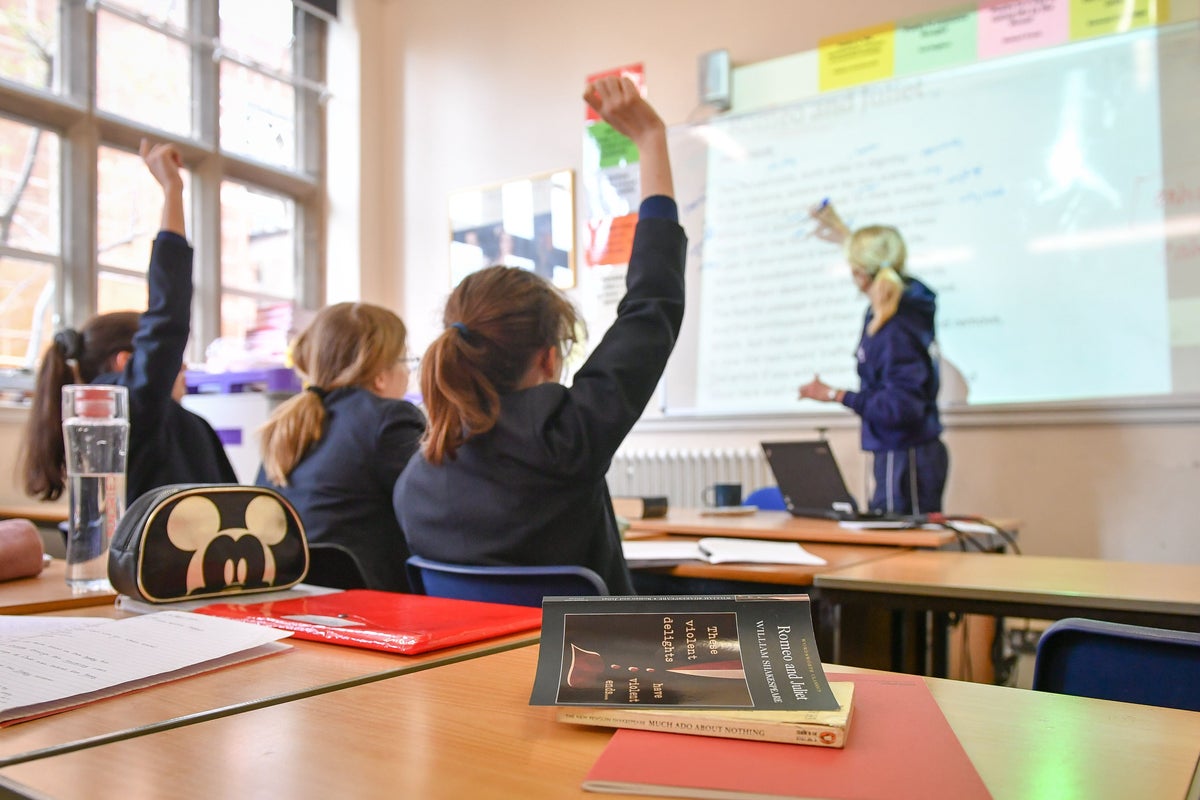
The government must ensure sex education in England does not become embroiled in the culture wars and “needlessly politicised”, dozens of leading organisations have warned.
A letter, signed by more than 50 organisations, urged the education secretary Gillian Keegan to ensure the forthcoming review of the statutory guidance on Relationships, Sex and Health Education (RSHE) confronts the “cultural norms” which prop up an “epidemic” of gender-based violence.
It comes after Tory backbencher MP Miriam Cates recently faced fierce criticism for claiming students in the UK were receiving RSHE that is “age inappropriate, extreme, sexualising and inaccurate”.
Ms Cates, MP for Penistone and Stocksbridge, told the Commons: “Graphic lessons on oral sex, how to choke your partner safely and 72 genders. This is what passes for relationships and sex education in British schools.
“Children are being subjected to lessons that are age inappropriate, extreme, sexualising and inaccurate, often using resources from unregulated organisations that are actively campaigning to undermine parents.”
The PM Rishi Sunak responded by requesting the Department for Education to “ensure schools are not teaching inappropriate or contested content” in Relationships and Sex Education, stating he would bring forward a review of how this subject area is taught in schools. This will only be conducted in state schools in England.
But Andrea Simon, director of End Violence Against Women and Girls, who signed the letter, told The Independent: “The concerns Cates has raised have been disputed by the organisations which she was basing her claims on.
“Content that covers things such as choking and anal sex is not provided to children in UK schools. It is very concerning to hear this regressive backlash and then to learn it wasn’t grounded in the reality of what is happening in UK schools.
“Because sex education is so important, it should transcend being needlessly politicised. It is vital children and young people receive healthy sex and relationships education. In the absence of this, we run the risk of them turning to porn to fill in the gaps.”
The letter to the cabinet minister states schools are an “absolutely critical site for the protection of girls” and they provide the “best opportunity to challenge attitudes which condone abuse, and transform the long-term likelihood of abuse in adult relationships”.
Signatories include leading domestic abuse charities, Women’s Aid and Refuge, prominent gender equality charity, Fawcett Society, Humanists UK, and Rape Crisis England & Wales.
The letter states: “In light of recent headlines – which have the potential to incite opposition to much needed RSHE delivery in schools, we are seeking assurances that the upcoming review will not be unnecessarily politicised, and will be focused on what children and young people need to live happy and healthy lives, and the urgent need to do more to tackle violence against women and girls and the rising influence of online misogyny in schools.”
Campaigners concerns come after teachers have raised fears increasing numbers of boys are being influenced by Andrew Tate - a misogynistic influencer who has 4.5 million Twitter followers.
Mr Tate is a former kickboxing world champion-turned-influencer who has been banned from a number of social media platforms for hate speech and voicing misogynistic views.
The Independent previously reported on research by the Centre for Countering Digital Hate (CCDH) which unearthed 47 videos of Mr Tate pushing what it describes as “extreme misogyny”.
The letter states: “The specialist violence against women and girls sector – with a long history of delivering evidence-based and trauma-informed interventions with children and young people – must have a critical role in delivering RSHE if the government seeks to fulfil its commitment to tackling violence against women and girls.”
While signatories also draw attention to a recent Sex Education Forum poll that discovered the the issues which children and young people thought hadn’t been touched on enough, or at all, included porn, power imbalances in relationships, cultural and faith-based viewpoints, LGBT+ issues, men’s behaviour to women, among other topics.
A representative for the Department of Education said: “All children deserve to grow up in a safe environment, which is why we will be publishing further guidance on how schools can create a culture of respectful relationships, and teach effectively about sexual harassment, sexual violence and stamping out violence against women and girls.
“We are also protecting children though our Online Safety Bill, by ensuring technology firms will be required to enforce their age limits to stop children from being exposed to harmful material online.”





